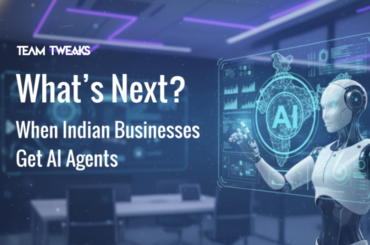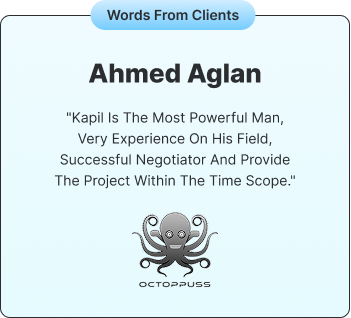Introduction
In recent years, the advancement of artificial intelligence (AI) has revolutionized various industries, including the field of conversational agents. ChatGPT, powered by OpenAI’s GPT-3.5 architecture, is an impressive language model that can generate human-like responses and engage in meaningful conversations. However, to ensure the optimal performance and reliability of such AI systems. The effective project management practices need to be implemented. This is where AI Project Risk Management (AIPRM) comes into play. In this article, we will explore the concept of AIPRM and its integration with ChatGPT to enhance its conversational intelligence.
What is AIPRM?
AI Project Risk Management (AIPRM) is a framework designed to identify, assess, and mitigate potential risks associated with AI projects. It focuses on managing risks specific to AI development, deployment, and maintenance, taking into account the unique challenges and complexities that arise in AI-driven initiatives. AIPRM aims to minimize the negative impact of risks on project objectives, timelines, and performance, ensuring the successful delivery of AI solutions.
The Importance of AIPRM for ChatGPT:
- Integrating AIPRM with ChatGPT is crucial for several reasons. Firstly, as ChatGPT is an AI-powered conversational agent. It interacts with users in real-time, making it susceptible to unforeseen risks. AIPRM helps identify potential risks that could impact the accuracy, reliability, and ethical aspects of ChatGPT’s responses.
- AIPRM ensures that the development and deployment of ChatGPT align with industry best practices, regulatory requirements, and ethical standards. This reduces the risk of unintended biases, misinformation dissemination, or misuse of the system.
- AIPRM enables proactive risk mitigation throughout the lifecycle of ChatGPT. By identifying risks early on, appropriate measures can be taken to address them, minimizing the impact on users and optimizing the overall performance of the conversational agent.

Key Components of AIPRM for ChatGPT:
- Risk Identification: This involves systematically identifying and documenting potential risks associated with ChatGPT. Risks could include data privacy breaches, biased responses, security vulnerabilities, or system failures. Collaborative efforts between AI experts, project managers, and domain specialists are crucial for comprehensive risk identification.
- Risk Assessment: Once risks are identified, a thorough assessment is conducted to understand their likelihood and potential impact. This helps prioritize risks based on severity and allocate appropriate resources for mitigation efforts.
- Risk Mitigation: Risk mitigation strategies are developed to minimize the probability and impact of identified risks. For example, steps can be taken to enhance data privacy protocols, implement bias detection and correction mechanisms. To ensure the system’s robustness against adversarial attacks.
- Monitoring and Control: AIPRM for ChatGPT involves continuous monitoring of the system’s performance and risk landscape. Real-time monitoring allows for quick detection and response to emerging risks, ensuring that the conversational agent operates within desired boundaries.
- Documentation and Reporting: This is a crucial component of AIPRM for ChatGPT, supported by project management software. This involves maintaining detailed records of identified risks, their assessment, mitigation strategies, and outcomes. Project management software enables the systematic recording and tracking of this information, ensuring that all stakeholders have access to up-to-date risk data. Reporting functionalities in the software allow for the generation of comprehensive reports on risk status, trends, and mitigation efforts, facilitating informed decision-making and continuous improvement of the AIPRM process for ChatGPT.

Benefits of AIPRM for ChatGPT:
- Enhanced Reliability: AIPRM helps identify and address potential risks that could affect the reliability and trustworthiness of ChatGPT. By proactively managing risks, the system can provide more accurate and consistent responses, improving the user experience.
- Ethical Compliance: AIPRM ensures that ChatGPT operates within ethical boundaries by minimizing risks related to biased or inappropriate responses. Compliance with regulatory and legal requirements is also strengthened through risk mitigation strategies.
- Improved User Safety: By addressing risks related to privacy, security, and data integrity, AIPRM contributes to user safety. This instills confidence in users, making them more willing to engage with the conversational agent.
- Optimal Performance: AIPRM enables early detection and mitigation of risks that could impact ChatGPT’s performance. This leads to improved system stability, reduced downtime, and enhanced overall performance. The principles of AIPRM can also be applied to multi-agent LLMs, potentially increasing their reliability and effectiveness in complex tasks.
Conclusion:
Integrating AIPRM with ChatGPT is vital to ensure the reliable and ethical operation of AI-powered conversational agents. By implementing a systematic approach to risk management, potential threats can be identified, assessed, and mitigated throughout the lifecycle of ChatGPT. AIPRM enhances the reliability, ethical compliance, user safety, and performance of ChatGPT, contributing to a more effective and trustworthy conversational experience. As AI continues to advance, AIPRM will play a pivotal role in shaping responsible AI development and deployment practices.















